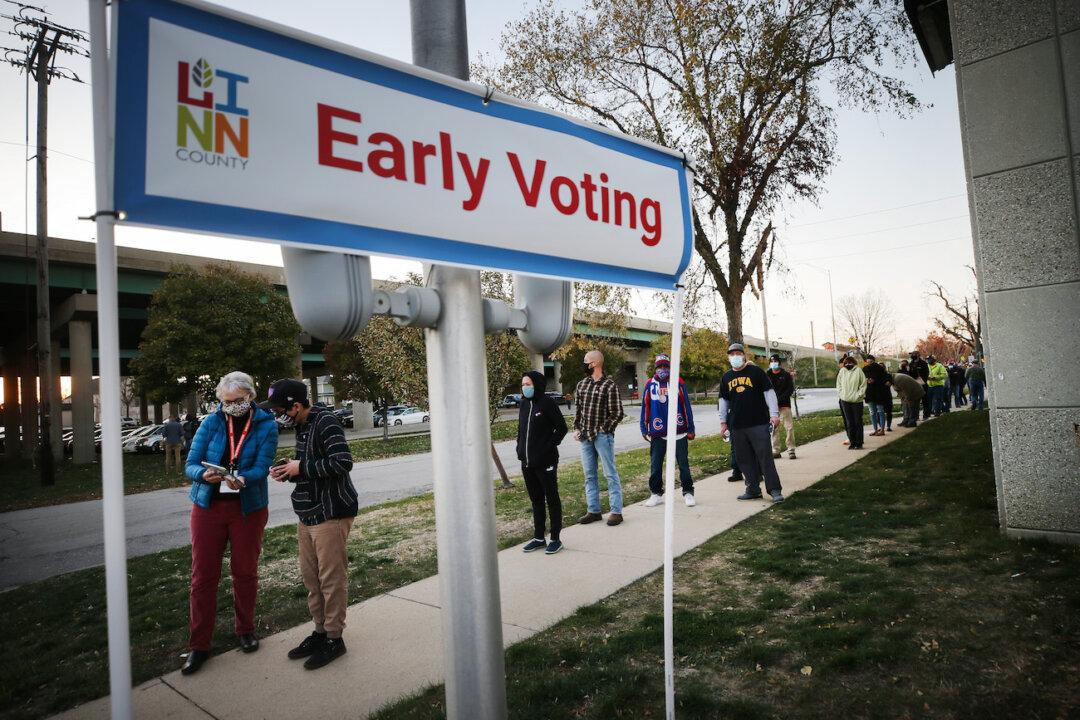Iowa Gov. Kim Reynolds on Monday signed a bill to limit absentee voting, shorten early voting, and close the polls earlier on Election Day.
The Republican-backed law, SF 413, will shorten the state’s early voting period from 29 to 20 days. It also requires most mail ballots to be received by Election Day. Previously, they could arrive by noon on the Monday after the election, if they were postmarked. Voting sites must close at 8 p.m., an hour earlier than before under the law.




